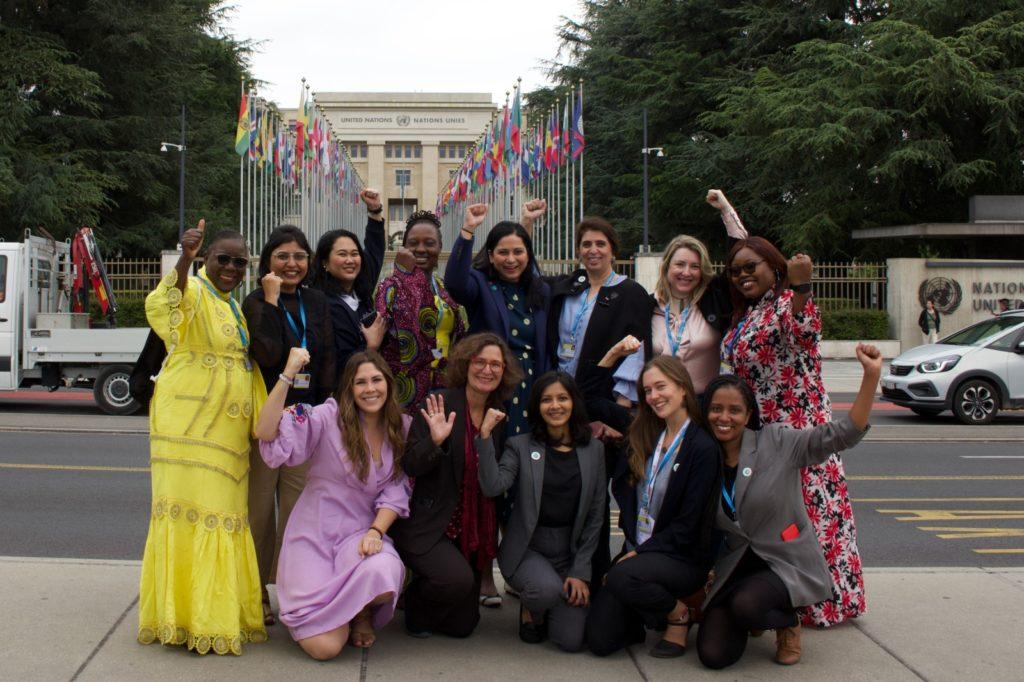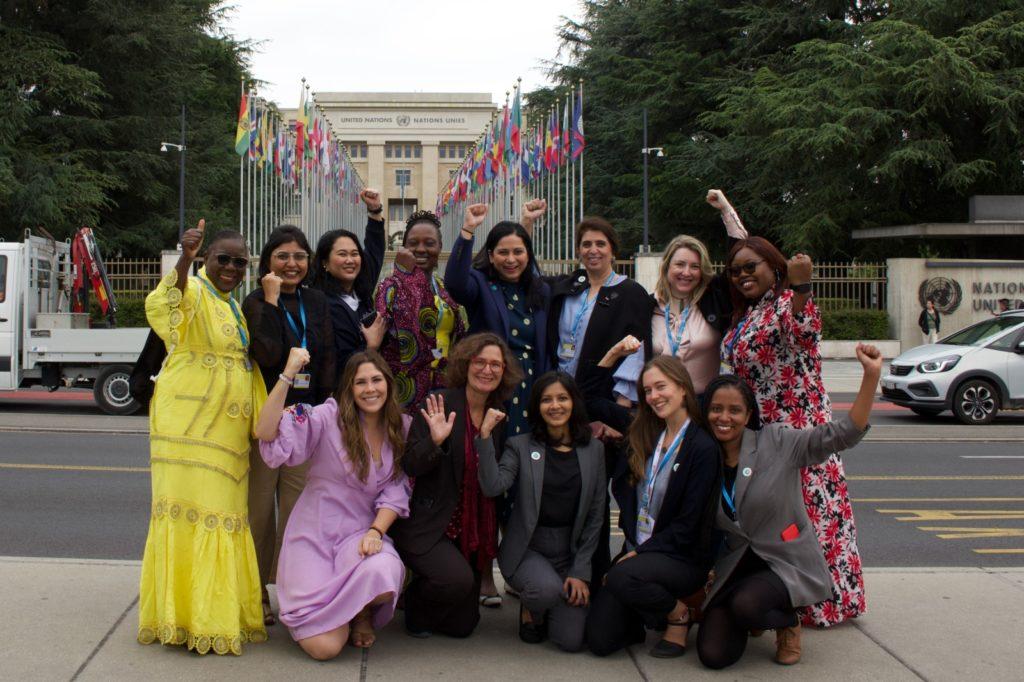
As we advocate for health equity in global health settings in different parts of the world, one can see some of the inequities in full display and even amplified in Geneva at the 76th World Health Assembly (WHA76), which I’m currently attending. From restricted access to civil society, to representation among delegates – in terms of youth engagement, the LGBTQIA+ community, people with disabilities, and certainly community health workers (CHW), who have been mentioned in almost every panel, but where are they?
Throughout my time here in Geneva, I have been asking the more seasoned delegates at #WHA76 whether they have seen any impact or change in policies over the years, by being at these “supremely high-level” events and if so, how long it takes for the change to materialize. ‘It is a slow process’, ‘sometimes it takes decades to see the changes in the policy’, ‘it’s a long-term game that requires perseverance and persistent advocacy’, I often hear…
Refreshingly, Women in Global Health (WGH) is attempting to change the narrative and accelerate progress on gender equity in global health, through targeted evidence and strategic advocacy. Indeed, in recent years, WGH’s steady drum beat on inequities in the healthcare workforce, through its continued engagement with countries during WHAs as well as at Executive Board meetings, is slowly starting to pay off. More specifically, over the last year, WGH has sent specific data points, messages and key asks on the Pandemic Accord, Universal Health Coverage (UHC) and Prevention of Sexual Exploitation and Harassment (PSEAH), ahead of negotiation sessions. We are now able to track our language and asks, as they start to be reflected in some of the key documents. Key leaders and allies are also joining the movement, using our data points, and integrating gender dimensions in their statements, interventions and work.
It was also inspiring to see WGH allies and gender champions such as Dr Githinji Gitahi, CEO of Amref Health Africa, step down from a #manel on climate and health and invite women with relevant expertise to join on the spot, as he did at #WHA76. All of this demonstrates the strength of the WGH movement which thrives on the values of gender equity, challenging power and privilege in global health, and demanding accountability.
Having said that, while we have seen some accomplishments so far, including here at WHA76, much more work remains to be done. For instance, advocacy on CHWs’ rights is growing in strength and scope, but we have yet to see an impact. Yes, member states and other stakeholders are explicitly acknowledging that women who make up 70% of the healthcare workforce are burned out and leaving the profession in a ‘great resignation’ wave, which adds to the global shortage of healthcare workers. However, the main narrative in response to this ‘great resignation’ has been to train healthcare workers in large numbers, instead of addressing the root causes of safe and decent work, fair pay, harassment free workplace, gender-equal leadership. Conversations at some of the digital health events at WHA76 largely focused on training the CHWs to use smart digital tools, for example, while missing out completely on the contextual realities and challenges they encounter on the ground.
I was able to raise some pertinent ground-level concerns women and girls experience to access their sexual and reproductive health rights on a daily basis in a deeply patriarchal society like India. It is time that we use the opportunity of being at venues like WHA76 to act upon the wealth of knowledge civil society brings into the discussions and respond to the needs of women and health care workers.
We also need to continue to advocate for gender equal leadership in Global Health. With an increase of 9% in women-led member state delegations to WHA76 (from 23% in 2022 to 32% in 2023), it is conceivable to strive for at least 50-50 representation at WHA77!

WGH In-person Delegation at #WHA76